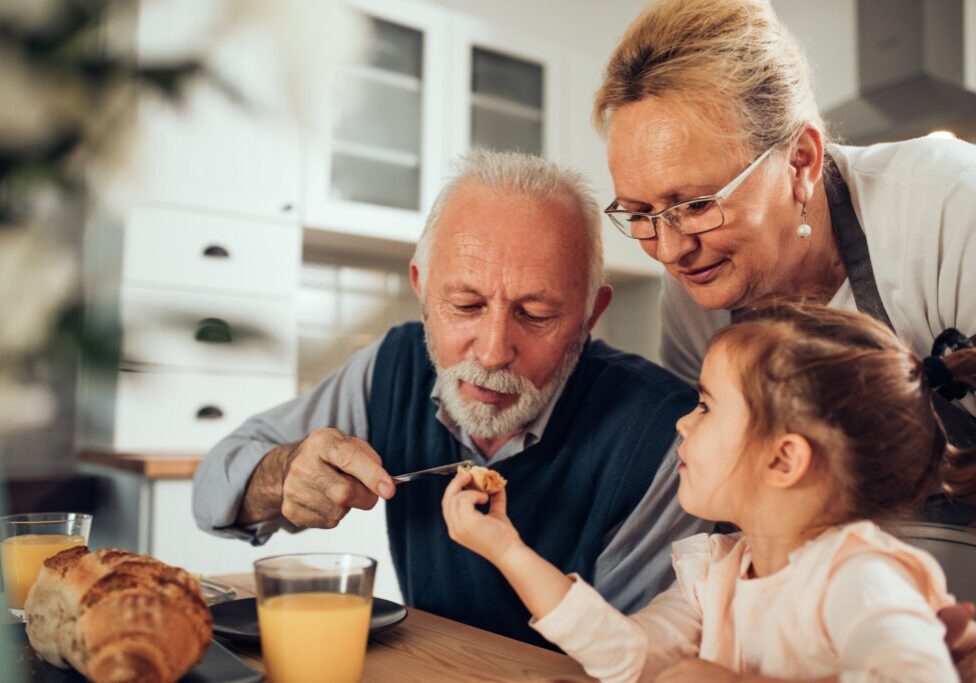Whitney, a 65 year old Mississippi woman interviewed for MAZON’s This Is Hunger project,[efn_note]MAZON: A Jewish Response to Hunger funs some of the Louisiana Budget Project’s anti-hunger advocacy.[/efn_note] tells a story emblematic of how seniors in the South often experience hunger: After a lifetime of work, Whitney was left with few resources when she suddenly lost her job. She faced impossible choices between getting the health care she needs and keeping food on her table, all in a landscape emptied of opportunity by racism and economic hardship:
I had planned to work until I wasn’t able to anymore, so losing that job really did somethin’ to me. My blood pressure went way up and I stopped sleepin’ at night. It’s hard times now, living only on $968 a month in Social Security. I’m a breast cancer survivor, but I don’t have money to go to the doctor or have a mammogram like I should. I don’t have money to change my glasses out. Sometimes I go into overdraft to pay my monthly bills. But then I get charged $36 by the bank, and I have $36 less for food. I can’t give up my car, because I have to drive 16 miles south to Cleveland to buy food because the stores here don’t have fresh vegetables worth buying. What they do have looks rotten, ready for composting. We used to have good groceries here in Shelby, then the schools got integrated and the white people closed down their stores and moved out of town.
According to a new report by Feeding America, situations like Whitney’s are particularly common in Louisiana, where a greater percentage of senior citizens experience food insecurity than in any other state. In 2017, 12.3% of the state’s seniors were “food insecure,” meaning they reduced the quality or quantity of their food because they lacked the money for fuller or more nutritious meals. This is the second year that Feeding America ranked states according to their rates of senior food insecurity—in both years, Louisiana bottomed out the list. The New Orleans-Metairie-Kenner metropolitan area had the second-highest rate of senior food insecurity of all U.S. metro areas larger than 1 million people, at 12.8%.
Hunger among senior citizens has many causes. In Louisiana, 18.8% of people over 65 live below 125% of the federal poverty level ($21,138 for a family of two). In such severely resource-constrained households, resources that would go to buy nutritious food compete with utility bills, medication, housing costs and other necessities.
Nationwide, Feeding America’s study found, the effects of persistent racial inequality have led Black and Hispanic seniors to experience food insecurity at more than double the rates of White and non-Hispanic seniors, respectively. And disabled seniors, seniors caring for grandchildren, and senior women all face food insecurity at elevated rates. While Louisiana has higher levels of senior food insecurity and senior poverty compared to the rest of the nation, Louisiana seniors who are eligible for the Supplemental Nutrition Assistance Program (SNAP) receive benefits at levels below the national average (33% of eligible seniors enroll in SNAP in Louisiana, compared with 42% nationwide).
The Feeding America study additionally found that rates of senior food insecurity decline as the population ages. But while this statistic may sound hopeful, the fact that life expectancy drops as poverty increases suggests that America is not more successful at helping older Americans, but rather that poor Americans, who are far more likely than rich Americans to be food insecure, are less likely to live to see older ages.
Louisiana’s high rates of senior food insecurity reflect a failure of the state’s social supports, not only for Louisiana’s seniors, but for Louisianans in their earning years. When under-resourced schools, mass incarceration, and low minimum wages leave thousands of Louisiana residents with little choice but to live paycheck-to-paycheck throughout their working lives, those same residents have little-to-nothing to live on when they retire.
To address the crisis of senior hunger in our state, Louisiana needs to combat senior hunger directly through robust and creative SNAP outreach, and to attack the causes of senior food insecurity by raising wages and increasing opportunities for all Louisianans when they are young.

